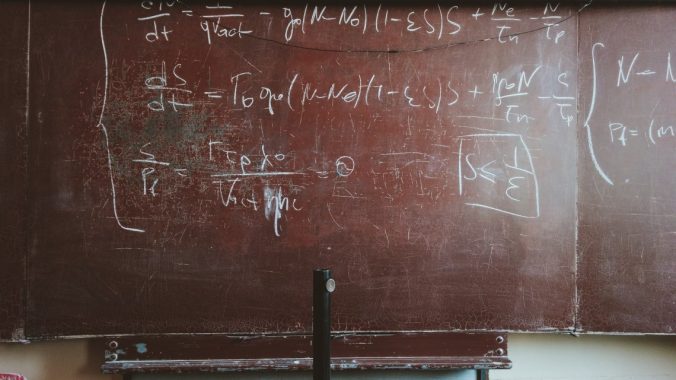The first thing that comes to mind when I think of 2018 is holy crap where did it go….
It’s been a whirlwind and here’s a short list of things that it was filled with:
A dislocating shoulder, surgery to fix a dislocating shoulder, rehab (for a previously dislocating shoulder), lack of playing Ultimate (due to said shoulder), lots of coaching Ultimate (in lieu of playing it), learning how to be an Ultimate coach, failing in aspects of coaching Ultimate, situations that caused me to learn I needed to improve my empathy, small improvements in my empathy for others, uncomfortable performances (thank you Box Factory), hitting a consistent workout regiment in the gym, having a consistent partner again (I’d forgotten how great that is), trying to learn Spanish way too fast, failing at learning Spanish way too fast, playing Ultimate again (yay!), camping weekends, cottage weekends, dancing the night away, and sharing dinners with friends…
But here’s the list I said I was going to focus on this year, and how I think I did…
[5/5] Read 2-5 quality books a month
I read 74 books in 2018. The list included 49 non-fiction, 5 biographies, and 20 fiction books varying significantly in topics. The way I went about making the list was mostly through recommendations from friends and mentors, but also using some of my favourite authors reading lists.
I’d consider this a success because I reviewed every one of these books and know the impact they had on my life. Overall, there were four I rated at 2/5, eighteen at 3/5, thirty-seven at 4/5’s, and fourteen at 5/5.
[3/5] Dance Salsa/Bachata/Kizomba (1/week)
Dance is one of the most unexpected hobbies I ever thought I’d enjoy but it constantly pushes my coordination, and comfort zone in ways that I truly enjoy.
I am very comfortable with how I dance today, but I really wanted to build on this skill last year by diversifying the dances I knew well (Bachata, Kizomba) and adding in new moves/flare to my Salsa dancing.
Unfortunately, I re-injured my shoulder in Dec. 2017 and had surgery for it in April 2018 at which point I was unable to dance for 11 weeks. Turns out you kinda lift your arm above your head when you turn the lady…
That being said, I managed dance 14/41 weeks last year and I’m happy I was able to get out that much.
If there’s one thing I should try to do more of next summer is capitalizing on the great outdoor Salsa nights in Guelph and Hamilton.
[5/5] Write blog posts more often (1/month)
I adjusted this goal pretty quickly in the new year to be focussed around building my reading list.
The objective was to create consistently good content for those people who have offered to read my reviews each month.
Doing this, and through posting once a month, I was able to grow the number of people who subscribe to my book reviews by nearly 2.5x (though the total number of followers is low, this is the best I’ve ever done on this front and I’m really proud of that).
If you haven’t signed up and are interested in hearing my reviews, you should sign up here:
[4/5] Increase the amount of learning I do in my job (3h/week)
This year I transitioned out of a more day to day troubleshooting role and into a more process engineering role focused on long term projects.
I was responsible for the design and success of various shutdown projects that we are seeing the benefits from now in 2019.
I would have preferred to make this more of a routine habit for developing my skills, but it was rather scattershot and based on the projects assigned to me. This year I want to put more focus on structure.
[0/5] Play music week-daily (10 min/day)
This was a big goal for me in 2017, but it didn’t stick in 2018. That being said, I have still retained most of what I did in 2017 which is a great demonstration of how building skills through deliberate practice
I did play here and there, but it was only when I was feeling like it and I think it would be wrong to say I put effort into it so it gets a 0/5.
[0/5] Spend 1 hour a week learning music theory (1hr/week)
Like playing music daily, this one also fell by the wayside.
[3/5] Book a trip to South America (Mexico?) and learn conversational Spanish before I arrive
I give myself an A for effort on this one.
I planned a Trip to Mexico City and gave myself an ambitious goal of learning conversational Spanish before then. I put in a consistent effort before my trip to Mexico City, during my trip to Mexico City, and after. But it pretty much fell apart when I had shoulder surgery.
What did I achieve?
I spent a lot of time on enunciation trying to get the phonetics right and I think this has paid off long term. I can roll my R’s and can read/speak the phonemes fairly well.
I spent a lot of time practising the 1000 most common words in Spanish, and I probably nailed down about 80 of them into my long term memory which really falls short of the rest.
What didn’t I achieve?
I’m still very far from conversations. I don’t do well with building phrases yet, and I struggle with listening/comprehension.
Why?
Well looking back I didn’t build the habit, I just built the goal and was working towards the goal. I think this is often why people fail with language goals because they forget process. You need to do this consistently for long periods of time.
[5/5] Maintain a minimum of 3 times per week at the gym (to keep my body injury free)
This year was fought with some really challenging physio and rehab for my shoulder. I had surgery April 9th, and leading up to it I tried to build up some muscle, and then I had a period of 9 weeks where I wasn’t able to really train. It wasn’t until about May that I was in the gym for my physio and then I started to really see improvement in my shoulder strength and range of motion.
This year I worked out 148 times in total. Over the course of the year, I went to the gym 3 times or more 30 weeks total. My longest streak for
This has been a tough year for me on the physical front because I didn’t play any sports until September, and had to rely on the gym as my main mode of fitness.
What I plan to do in 2019:
- Maintain my fitness habits – gym 3x/week minimum
- Return to Nationals level Ultimate Frisbee as a player
- Take an intro/intermediate Bachata class
- Spend 4 hours per day at work focussed on value-based projects
- Continue to learn Spanish. Build a process in January, and use it to learn as much as possible before my trip to Colombia in April
- Read a paperback book every day (daily)
- Think about a business idea/product/invention every day and log it in an idea journal (1/day)
- Maintain my reading habit – (2/5 quality books per month)
- Write monthly emails my reading list, focusing on quality
- Write 4 articles and share them (1/quarter)

